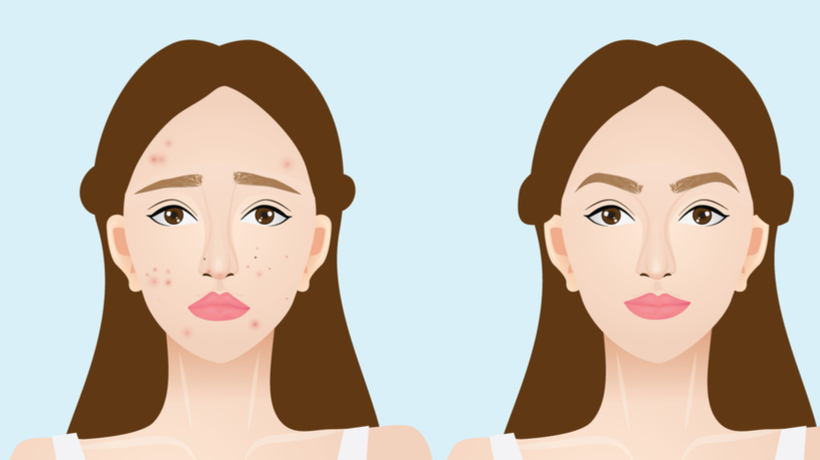Vitamin B has recently received a lot of attention within the world of skin care, with numerous experts explaining how the inclusion of the nutrient can be a key component of your daily regimen. In fact, research has revealed that vitamin B can benefit the skin both when ingested and when applied topically.
Previously, vitamin B was thought to be just a single nutrient, but it was later discovered that these are chemically distinct vitamins that show up in the same food sources together. The different vitamins are Vitamin B1 (thiamine), Vitamin B2 (riboflavin), Vitamin B3 (niacin), Vitamin B5 (pantothenic acid), Vitamin B6 (pyridoxine and pyridoxamine), Vitamin B7 (biotin), Vitamin B9 (folate or folic acid), and Vitamin B12 (cobalamin).
Read on to learn what the various B vitamins can do for your skin.
Prevent aging
B-complex vitamins, especially vitamin B1, counteract the damage caused by free-radicals— molecules that break down healthy cells and contribute to the appearance of aging.
Retain moisture
Nicotinamide, a derivative of vitamin B3 (niacin), has been shown to improve the ability of the epidermis, the uppermost layer of the skin, to retain moisture. The result? Softer, smoother skin with less dryness and flakiness, and a reduction of fine lines.
Lighten the skin
On top of that, nicotinamide can also be an effective skin-lightening agent when added to moisturizers and other topical creams. In this way, vitamin B can lighten those unattractive dark spots that show up on the face.
Prevent hyperpigmentation
Vitamin B12 helps to regulate the skin’s pigment production and location, preventing the process of hyperpigmentation—the darkening of the skin in certain parts of your body.
Minimize breakouts
Vitamin B5 can help to get rid of acne by helping the body to break down the oils that cause pimples in the forms of triglycerides and cholesterol.
Faster wound healing
Vitamin B5 also helps to promote faster healing of skin wounds. It is most effective when combined with vitamin C.
Protect against UV rays
Vitamin B protects against harmful UV rays of sun that can cause sun damage to the skin.
Combat skin disease
Also known as niacin, vitamin B3 can help to improve skin conditions, helping to treat rosacea, acne, eczema, dermatitis. Additionally, biotin, or vitamin B7, can help to keep rashes, dermatitis, psoriasis, eczema, and acne at bay.
Lessen skin irritations
Vitamin B helps to reduce redness, scaliness, and other common skin irritations.
Our body is not capable of producing vitamins on its own, so we depend on external sources to ensure that our skin’s needs are fulfilled. So if you’re looking to reap these awesome skin benefits, add some more vitamin B to your diet today.
Sources:
https://www.myvitamins.com/articles/nutrition/beauty-benefits-b-vitamins/
https://www.stylecraze.com/articles/amazing-benefits-of-vitamin-b-for-skin-hair-and-health/#gref
http://www.skinstore.com/blog/skincare/b-vitamins/



